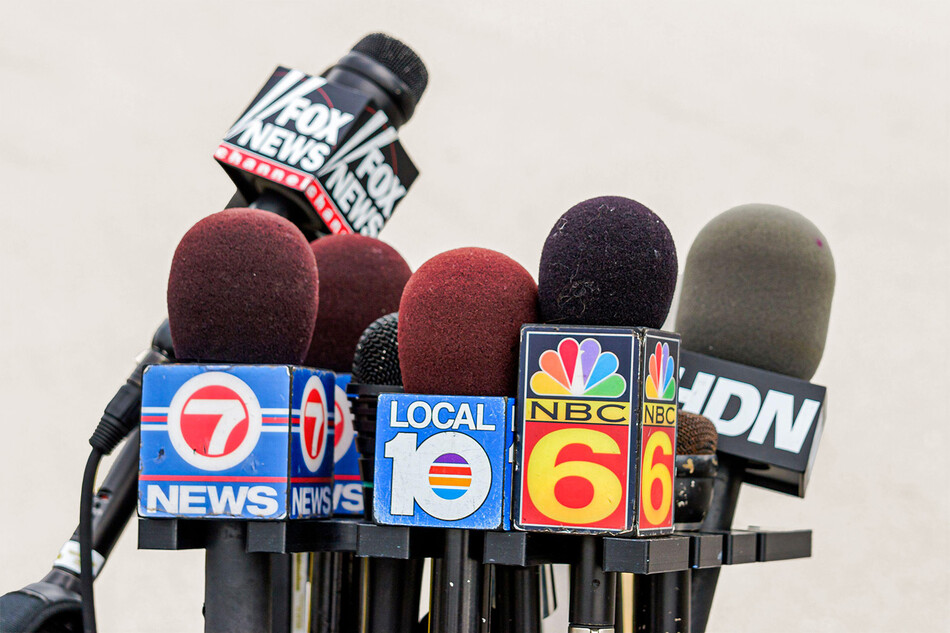Not long after voters elected Donald Trump as the forty-seventh president of the United States, three journalists and a statistician got together in Low Rotunda for some sober analysis. Hosted by SIPA’s Institute of Global Politics, the Office of the President, and Columbia Journalism School, the talk examined the news media’s performance in covering the 2024 campaign.
Sewell Chan, executive editor of Columbia Journalism Review, moderated a panel that featured Andrew Gelman, a professor of statistics and political science; Garrett Haake, a senior Capitol Hill correspondent for NBC News and MSNBC; and Errin Haines, the editor-at-large of the independent news website The 19th. Chan, acknowledging that we are in “a very significant time in the life of our country and our democracy,” posed a question: how did the mainstream press do?
While no major news organization was guilty of denying oxygen to candidate Trump, the panelists focused more on the media’s deficits than its excesses. Haines found that some in the mainstream press brought two preconceived narratives to their reporting: the assumption that abortion would be a decisive boon for the Democratic candidate Kamala Harris and the even bigger assumption that, given all that was known about Trump, including a criminal conviction, dozens of criminal charges, and a civil adjudication of sexual assault, “the American people couldn’t possibly make this choice again.” Yet for many voters, the price of groceries carried the day. That reporters heard these economic cries but still held to their storylines revealed, said Haines, a “dissonance between the press’s perspective and the electorate’s perspective.”
The panelists also discussed, among other topics, the legacy of the pandemic as a factor in economic hardship and the modern glut of polls and pollsters and dubious polling methodologies. (“I think we can all agree that there are too many polls,” said Gelman. “It’s ludicrous.”) Then, of course, there was the elephant in the room: the explosion of alternative information sources, from X to Truth Social to podcasts, which have supplanted traditional media for millions of people and can be sources of mis- and disinformation. This raised questions for Haake and the old guard he represents: “How do we get people who’ve given up on mainstream media back in the tent? How do we regain our credibility?”
When asked by an audience member about the charge that the traditional media’s liberal bias prevented it from probing President Biden’s health before his disastrous debate with Trump on June 27, leaving Democrats with less time to replace him, Haake said it was “a worthy criticism” and that signs of Biden’s decline had been there for years. He confessed that after attending his first Biden event of the 2020 campaign season, “I walked away thinking there was no way this guy could win an election.” Then, after Biden became president, said Haake, the White House kept him largely out of view — “bubble-wrapped,” Haake said — making it hard to report on his condition.
Haines added that the press also failed to hold Biden to account when, after he had previously signaled that he would likely be a one-term transitional president, he announced his campaign for reelection. “We didn’t have that conversation either,” Haines said.
For Haake, the task ahead is to cover the Trump presidency fairly and honestly, and he described having a sense of responsibility toward his viewers, some of whom voted for Trump. “He made promises to them, and now it’s my job to hold him accountable for the promises he made to my audience,” Haake said. “Coverage of any politician should be oppositional — oppositional, but not ideological. I think that’s a very fine line to walk, but that’s the goal.”



